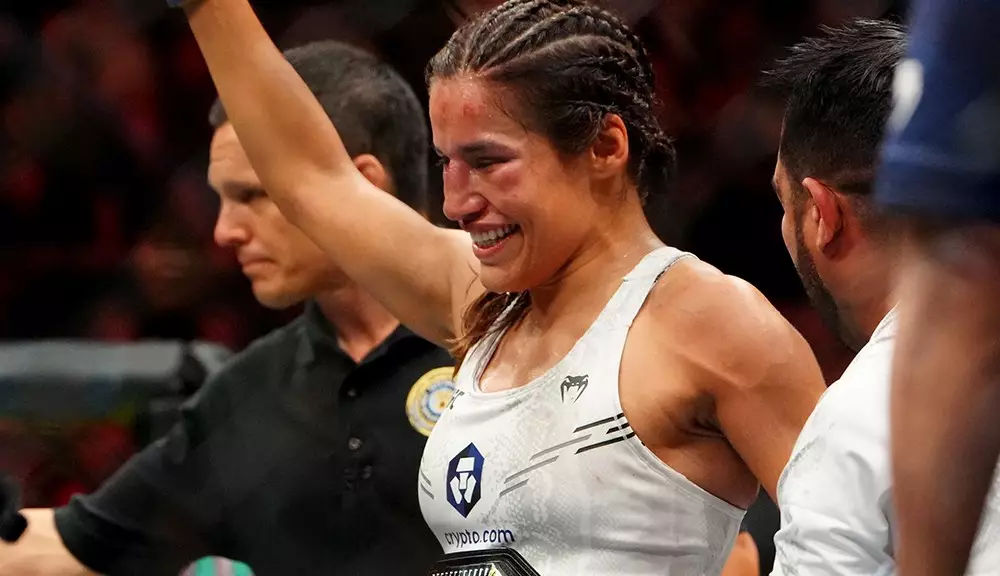At UFC 307, Julianna Peña made a striking comeback to the bantamweight division by reclaiming her title from Raquel Pennington via a split decision in a closely contested fight. This bout, held in Salt Lake City’s Delta Center, showcased Peña’s determination and skills as she reasserted herself as a key player in the UFC. However, the event also served as a backdrop for a significant strategic oversight concerning potential future matchups, specifically regarding Kayla Harrison, who had just secured her position as the No. 1 contender following a victory over Ketlen Vieira.
In post-fight interviews, fighters often use the moment to capitalize on their wins by calling out future opponents. This is an integral aspect of UFC promotion, as it generates excitement and momentum for upcoming matches. Unfortunately for Peña, Daniel Cormier, a notable figure in mixed martial arts, criticized her for not utilizing this opportunity effectively. His assertion highlighted that instead of calling out Harrison, who was clearly in attendance and listening, Peña opted to focus on a potential trilogy with Amanda Nunes—a matchup that held less immediate relevance.
Cormier underscored the significance of promoting the fight against Harrison, suggesting that this was a “missed ball” moment for Peña. By not addressing her likely next opponent directly, she may have inadvertently fallen behind in the promotional aspect of her career. The rivalry that could develop from a confrontation with Harrison possesses the potential to build not only fan interest but also enhance Peña’s narrative as a champion.
Analyzing Kayla Harrison’s Performance
Harrison’s performance against Vieira raised eyebrows, especially in light of her previous dominance in the sport. Cormier noted that, despite securing a win, Harrison did not appear at her best. In fact, he pointed out that she seemed to struggle at times, potentially revealing vulnerabilities in her striking and grappling. This scenario presented an ideal moment for Peña to seize the narrative. Instead of dismissing Harrison’s abilities, Peña could have capitalized on the perception of Harrison’s subpar showing by projecting confidence and embracing the challenge.
Cormier’s criticism serves to illustrate the delicate balance fighters must maintain between individual performance and promotional acumen. The ability to sell oneself and a potential matchup can play a significant role in one’s career trajectory, making it essential for fighters to stay reactive and engaged with the broader narrative of their division.
For Julianna Peña, the immediate implications of her post-fight choices are twofold. First, failing to actively promote a fight with Harrison could limit her impending negotiations and publicity efforts leading up to the bout. Second, it may also impact fan engagement, as fighters who engage in verbal exchanges increase their visibility and connection with the audience. Thus, Peña’s decision not to contextualize Harrison as a looming threat could haunt her in the buildup to what many expect to be an electrifying championship clash.
While Peña’s victory serves as a pivotal moment in her career, it also speaks volumes about the intricacies of fight promotion and the importance of strategic callouts. By not addressing Kayla Harrison directly in her victory remarks, Peña risks losing the upper hand in both marketability and public interest as she prepares for a likely showdown against a formidable opponent.

